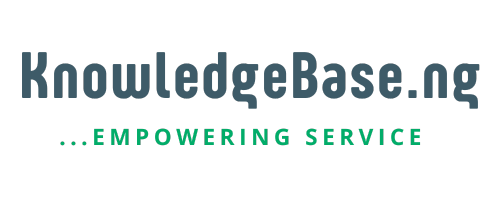Introduction: In the dynamic and demanding field of public service, possessing the right skills is essential for success. Public servants play a crucial role in serving the needs of their communities and driving positive change. To excel in their roles and effectively contribute to society, here are the top 10 skills that every public servant should possess.
- Effective Communication: Strong communication skills are paramount for public servants. Clear and concise verbal and written communication ensures that information is relayed accurately, policies are understood, and public engagement is maximized.
- Critical Thinking and Problem Solving: Public servants often face complex challenges and need the ability to analyze situations, think critically, and devise effective solutions. They should be adept at identifying root causes, evaluating options, and making informed decisions.
- Leadership: Public servants should exhibit strong leadership qualities, regardless of their position. Effective leadership inspires others, fosters collaboration, and enables the achievement of organizational goals.
- Adaptability: The public service landscape is ever-changing, requiring public servants to be adaptable and open to new ideas and approaches. They should embrace innovation, adjust to shifting priorities, and be willing to learn and grow in response to evolving needs.
- Ethical Decision Making: Integrity and ethical decision making are vital in public service. Public servants must uphold the highest ethical standards, adhere to codes of conduct, and make decisions that prioritize the public interest over personal gain.
- Collaboration and Teamwork: Public servants rarely work in isolation. They must collaborate effectively with colleagues, stakeholders, and community members. Building and nurturing strong relationships, fostering teamwork, and leveraging diverse perspectives are key to achieving collective goals.
- Data Literacy: In today’s data-driven world, public servants need to be proficient in understanding and utilizing data. They should possess basic data analysis skills, be able to interpret data trends, and use data to inform evidence-based decision making.
- Emotional Intelligence: Public servants interact with individuals from diverse backgrounds and may encounter challenging situations. Emotional intelligence helps them understand and manage emotions, empathize with others, and build positive relationships.
- Policy Development and Implementation: Public servants should possess a solid understanding of policy development processes. They should be able to draft effective policies, consider stakeholder perspectives, and ensure successful implementation and evaluation.
- Resilience: Working in the public service can be demanding and stressful. Resilience is crucial for navigating challenges, managing setbacks, and bouncing back from adversity. Public servants should cultivate resilience to maintain their well-being and continue making meaningful contributions.
Conclusion: Becoming an effective public servant goes beyond job titles and responsibilities. It requires a comprehensive set of skills that empower individuals to serve their communities and make a positive impact. By honing these top 10 skills—effective communication, critical thinking, leadership, adaptability, ethical decision making, collaboration, data literacy, emotional intelligence, policy development, and resilience—public servants can thrive in their roles and contribute to the betterment of society.

